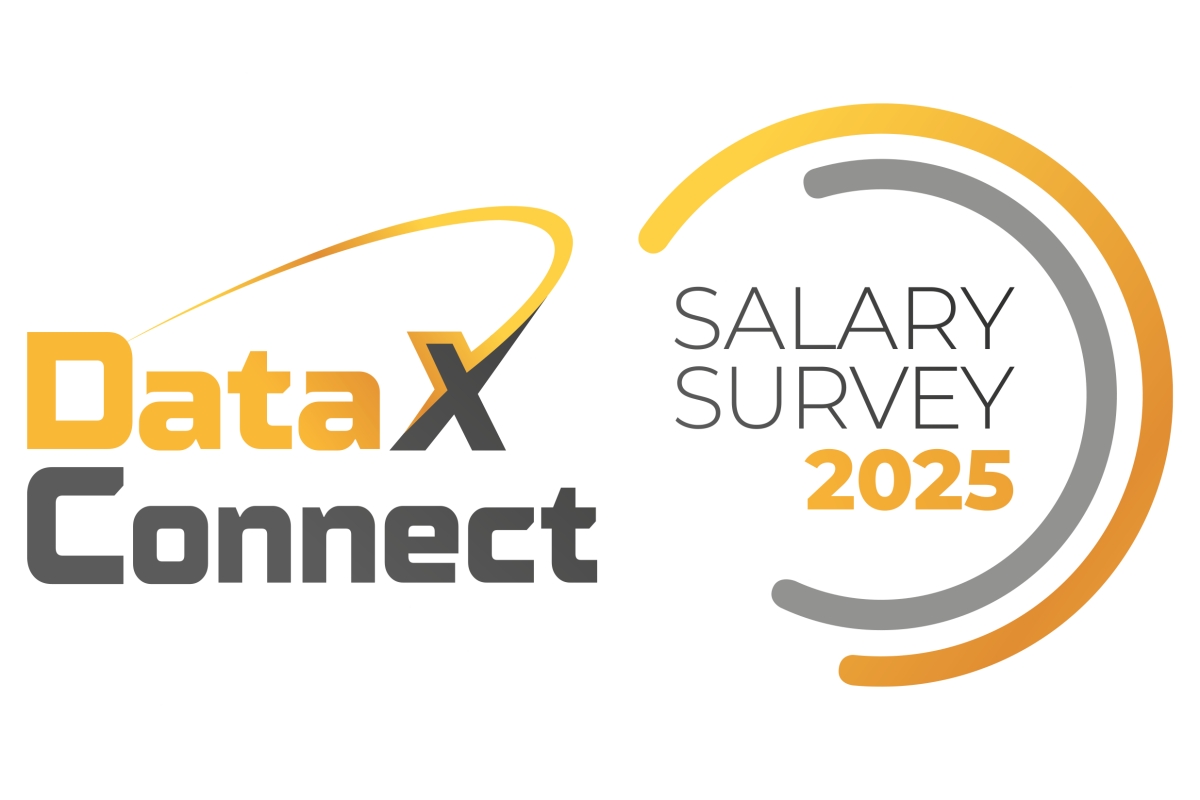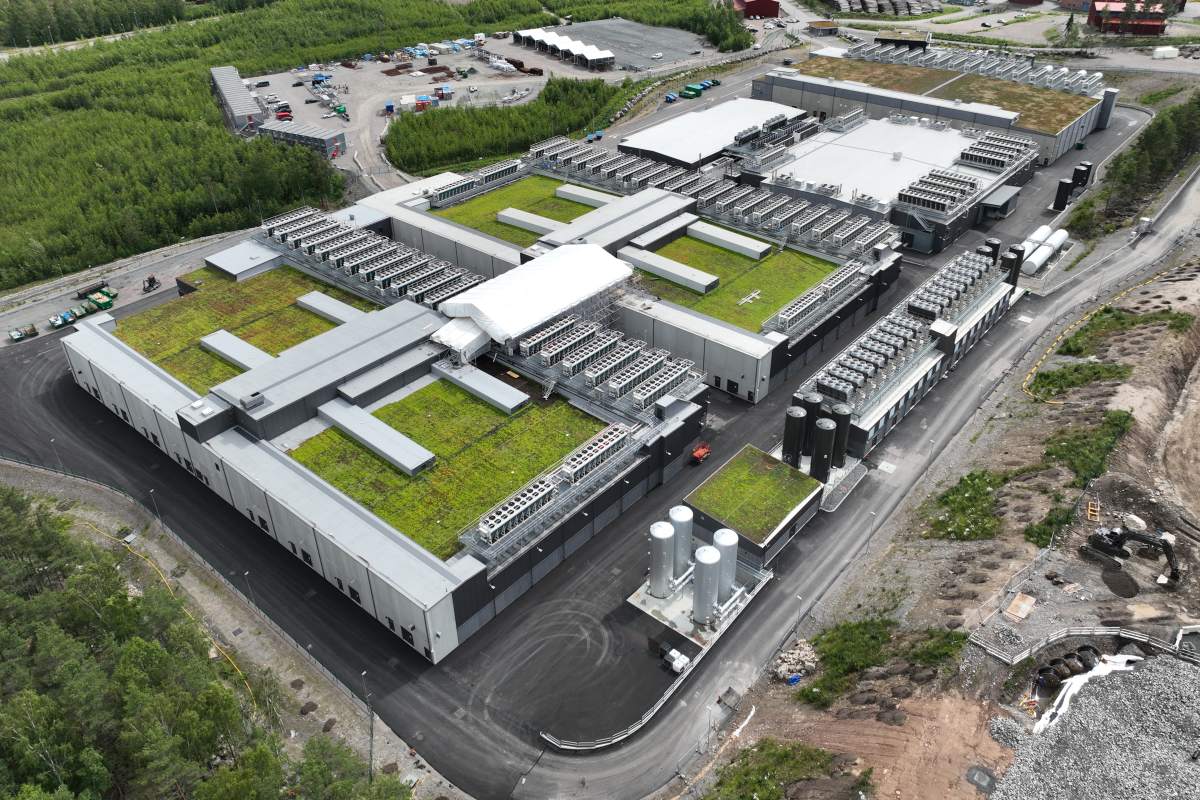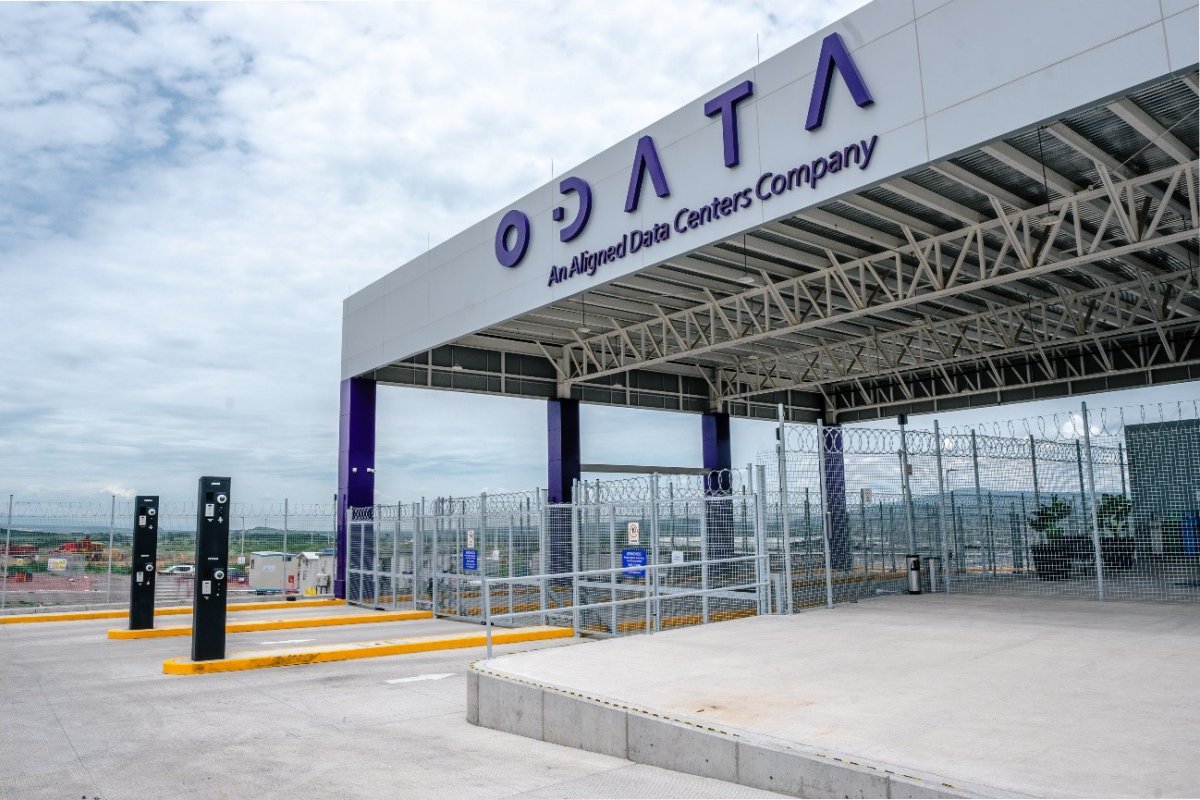Data Centre Business News and Industry Trends
Artificial Intelligence in Data Centre Operations
Data Centre Business News and Industry Trends
Data Centre Training & Certification Programs
News
Saudi Arabia’s first integrated data science and AI diploma
DataVolt, a Saudi Arabian developer and operator of sustainable data centres, has partnered with the Energy & Water Academy (EWA) and Innovatics to launch the Kingdom of Saudi Arabia’s first fully industry-integrated Diploma in Data Science and Artificial Intelligence (AI).
The new programme is designed to blend academic learning with practical, real-world experience, helping to prepare Saudi talent for the digital economy.
Announced at the LEARN event in Riyadh, the Diploma is approved by the Technical and Vocational Training Corporation (TVTC) and College of Excellence (CoE), and endorsed by the Ministry of Communications and Information Technology (MCIT).
It is also supported by the Human Resources Development Fund (HRDF).
Unlike traditional academic pathways, the programme combines classroom study with applied projects.
Students will work with sponsoring companies, including DataVolt, on live industry challenges, developing proof-of-concept AI applications and gaining hands-on experience that directly aligns with workforce needs.
As part of its commitment, DataVolt will sponsor five students from the first cohort and guarantee them employment after graduation. They will join the company’s operations supporting high-power-density workloads at its data centres, including its planned AI campus in Oxagon, NEOM.
DataVolt is inviting other organisations to co-sponsor the inaugural class of 100 students, with a target of 50% female participation. The first intake is scheduled to begin in November 2025.
Industry-led learning for the digital future
Rajit Nanda, CEO at DataVolt, says, “DataVolt is not only building the Kingdom’s next-generation data centres, but also the local Saudi talent to power them, ensuring the country is prepared to lead the global AI economy in the long term.
"Our investment in this first-of-its-kind Diploma demonstrates our commitment to Vision 2030 and we encourage our partners across the industry to join us in sponsoring the programme and future-proofing the local workforce.”
With AI expected to contribute around US$320 billion (£239.1 billion) to the Middle East economy by 2030, and Saudi Arabia set to see the greatest share of that value, the initiative supports the country’s Vision 2030 and the National Strategy for Data and AI (NSDAI).
The programme aims to help bridge the national skills gap and contribute to the target of training 20,000 AI professionals over the next five years.
Salwa Smaoui, CEO of Innovatics, comments, “This Diploma is not just education; it is a strategic workforce initiative. Our mission is to ensure every graduate is ready to contribute from day one to the Kingdom’s most ambitious AI projects.”
Tariq Alshamrani, CEO of EWA, adds, “EWA is proud to partner with DataVolt and Innovatics to deliver this programme. Together, we are developing the next generation of data scientists and AI professionals who will power the Kingdom’s digital future.”
DataVolt continues to expand its data centre footprint across Saudi Arabia. Earlier this year, the company signed an agreement with NEOM to design and develop the region’s first sustainable, net-zero AI campus in Oxagon.
The first phase of the 1.5 GW development, backed by an initial investment of US$5 billion (£3.7 billion), is expected to begin operations in 2028.
For more from DataVolt, click here.
Joe Peck - 9 October 2025
Data Centre Business News and Industry Trends
Data Centre Infrastructure News & Trends
Enterprise Network Infrastructure: Design, Performance & Security
Insights into Data Centre Investment & Market Growth
Turkish interconnection market projected to double by 2030
According to a new study by DStream Group, commissioned by internet exchange (IX) operator DE-CIX, Istanbul is emerging as a global digital hub and a key interconnection point for data traffic between Europe, the Middle East, and Central Asia.
The findings were published to mark the tenth anniversary of DE-CIX Istanbul, Turkey’s largest neutral internet exchange.
Over the past decade, the country has moved from a fragmented digital landscape to one of regional integration and growing global importance.
Istanbul’s role as a digital hub
The study highlights that Turkey has made notable progress in digital infrastructure, with Istanbul at the forefront. A combination of location, an expanding internet exchange market, and rising demand for data services has strengthened the city’s role in regional connectivity.
Istanbul’s data centre market is also expanding, supported by demand for cloud services, digital transformation, content delivery, and wider internet penetration. The report forecasts that the city’s interconnection market will exceed 150 networks and carry multi-terabit-per-second traffic by 2030, nearly double today’s levels.
Turkey’s position as a land bridge between Europe and Asia offers additional resilience for international connectivity. Nationwide fibre coverage and submarine cable systems landing in the country link directly with more than 20 neighbours, creating alternative routes for data flows.
Land-based connections also provide redundancy to European submarine routes, strengthening reliability.
Other cities, including Ankara, Izmir, and Van, are also emerging as infrastructure hubs, contributing to a more distributed national network.
DE-CIX Istanbul’s role
Established in 2015, DE-CIX Istanbul is the country’s first and largest neutral internet exchange, enabling low-latency data exchange between more than 60 networks. The exchange now operates across over ten colocation sites in the city, providing geographic redundancy.
According to DE-CIX, 93% of international networks in Istanbul peer through its platform. This has attracted global operators, encouraged development of land-based routes, and most recently supported the launch of an AWS cloud onramp in the city.
Bülent Sen, Regional Director of DE-CIX Türkiye, says, “Turkey is no longer just a gateway; it’s becoming a destination for digital investment. We are already seeing massive growth at the exchange.
"In early August, the IX surpassed 500 Gbit/s of throughput for the first time, and in September 2025, peak traffic exceeded 533 Gbit/s - up 42% since the start of the year. We expect this trend to continue, driven by the adoption of artificial intelligence, which many businesses now rank as a top investment priority.”
Looking to the next decade, DE-CIX predicts that AI and satellite internet will reshape demand for connectivity.
Ivo Ivanov, CEO of DE-CIX, adds, “With a commitment to neutrality, DE-CIX Istanbul is poised to anchor regional data flows and support the digital future of the whole region.
"AI and satellite-based internet will significantly reshape the connectivity landscape in the coming decade. Turkey is well-placed to play a major role in this transformation.”
The study suggests Turkey should focus on attracting hyperscale cloud providers, increasing CDN deployments, and broadening its interconnection ecosystem.
It also recommends regulatory reform, greater infrastructure liberalisation, and stronger public-private partnerships to support the country’s digital economy.
For more from DE-CIX, click here.
Joe Peck - 1 October 2025
Data Centre Business News and Industry Trends
Data Centre Training & Certification Programs
News
Kao Data's Academy to promote data centre careers
Kao Data, a developer and operator of data centres, has re-launched its online learning programme, the Kao Academy, aimed at inspiring primary school pupils to explore careers in the data centre and technology sectors.
The initiative, designed for Upper Key Stage 2 (ages 9–11), provides curriculum-based lesson plans explaining what data centres are, their role in modern life, and the types of jobs that will be needed in the future.
The resources also include games, puzzles, and a 'Data Super Hero' competition, targeted at pupils in areas where Kao Data operates, including Harlow, Slough, and Stockport.
Addressing the skills shortage
The relaunch comes as the data centre industry faces a significant talent gap. According to the Uptime Institute, staffing needs are already nearing 2.3 million roles worldwide, with shortages in engineering, operations, and IT infrastructure expected to increase further by 2030.
By linking STEM education to real-world applications through creative resources and classroom activities, Kao Data aims to encourage early interest in technology careers, particularly among underrepresented groups.
The programme has been developed with education specialists and social impact agency Hark London, which will also run in-school activity days in Slough featuring 'Data Centre Superheroes' teaching pupils about digital infrastructure.
Local and industry support
Chris Vince, MP for Harlow, says, “This new educational initiative from Kao Data is hugely welcomed in Harlow to help both teachers and children understand what data centres do and the range of high-quality tech jobs that will be available in the future.
"By helping teachers deliver these vital lessons, we ensure the next generation is ready to thrive in tomorrow’s tech-driven world.”
Navendu Mishra, MP for Stockport, adds, “We must equip the next generation with the skills needed to thrive in an AI-driven economy. Initiatives like the Kao Academy play a vital role in this effort, introducing children to the world of data centres and the critical role technology plays in our lives.”
Lizzy McDowell, Director of Marketing at Kao Data, says, “Our newly re-launched Kao Academy will help children connect STEM subjects to the data centre industry, sparking interest at a formative age and encouraging underrepresented groups to see a place for themselves in the tech industry.
"For the UK to remain competitive in the growing AI and digital economy, it is our collective responsibility to develop initiatives that bridge education and industry early.”
For more from Kao Data, click here.
Joe Peck - 30 September 2025
Data Centre Business News and Industry Trends
Data Centre Infrastructure News & Trends
Enterprise Network Infrastructure: Design, Performance & Security
Insights into Data Centre Investment & Market Growth
Ciena to acquire Nubis Communications in $270m deal
Ciena, an American networking systems and software company, has announced an agreement to acquire Nubis Communications, a privately held company based in New Providence, New Jersey, USA, in an all-cash transaction valued at $270 million (£199 million).
Nubis specialises in high-performance, low-power optical and electrical interconnects designed to support artificial intelligence (AI) workloads. The acquisition is hoped to strengthen Ciena’s data centre strategy by adding new technologies and expanding its engineering expertise.
Expanding data centre interconnect capabilities
Nubis’ technology is focused on increasing scale and density inside the data centre to handle growing AI traffic. Its portfolio includes:
• Co-Packaged Optics (CPO) and Near Packaged Optics (NPO) — high-density optical modules capable of 6.4 Tb/s full-duplex bandwidth, optimised for low-latency, low-power operation. Combined with Ciena’s SerDes, these engines enable advanced interconnects for rack-to-rack and in-rack connectivity.
• Electrical Active Copper Cables (ACC) — analogue electronics that extend copper connectivity up to 4 metres at 200 Gb/s per lane, offering a low-power, low-latency alternative to traditional copper or DSP-based approaches.
In addition, more than 50 Nubis engineers will join Ciena’s research and development team, strengthening its technical capabilities inside the data centre.
David Rothenstein, Chief Strategy Officer at Ciena, says, “The acquisition of Nubis represents a significant step forward in Ciena’s strategy to address the rapidly growing demand for scalable, high-performance connectivity inside the data centre, driven by the explosive growth of AI-related traffic.
"With ownership of these key technologies for a wider range of use cases inside the data centre, we are expanding our competitive advantage by advancing development of differentiated solutions, reducing development costs, and driving long-term efficiency and profitability.”
Dan Harding, CEO of Nubis, adds, “The Nubis team is thrilled to join Ciena and enhance its portfolio with our interconnect technologies. Together, we will advance Ciena's data centre strategy by delivering reliable and high-performance solutions to support the next generation of AI workloads.”
Transaction details
The acquisition has been approved by the boards of both companies and Nubis shareholders. It includes customary purchase price adjustments for cash, debt, and working capital, along with employee retention arrangements.
The deal is expected to close during Ciena’s fiscal fourth quarter of 2025, subject to standard closing conditions.
For more from Ciena, click here.
Joe Peck - 23 September 2025
Data Centre Business News and Industry Trends
Insights into Data Centre Investment & Market Growth
News
DataPro+ launches job board and social network
DataPro+ has launched what it describes as the first AI-powered job board and professional network dedicated to the global data centre industry.
The platform features more than 7,500 live job listings from employers worldwide and a pre-registered community of over 40,000 professionals.
Alongside recruitment, it offers a closed professional network for the industry, providing space for knowledge sharing, news, and career development.
Features of the platform
DataPro+ combines job listings with AI-driven tools and professional networking. Key functions include:
• AI job matching to connect candidates and roles more quickly• Global job aggregation to provide a single access point for industry opportunities• Automated distribution of vacancies across aggregators, social channels, and newsletters, with optimisation for reach and applications• Performance tracking to boost jobs where they receive the best engagement• Exclusive community features for data centre professionals to connect and share updates• Industry hub tools including job alerts, events, and insights• Next-generation support for students, graduates, and apprentices exploring career paths in the sector
Josh Young, Managing Director of DataPro+, says, “Our vision with DataPro+ is bigger than just jobs. We’re building the first dedicated hub where the data centre workforce can not only find opportunities, but also connect, share ideas, and strengthen the next generation of talent.
"Our AI technology ensures jobs don’t just sit on a site; they’re actively distributed, optimised, and delivered to the right professionals. LinkedIn is for everyone, DataPro+ is for our industry.”
Employers can advertise roles and access branding, marketing, and sponsorship packages to reach the industry workforce. DataPro+ says early sponsors will gain enhanced visibility across the platform’s job board, community, and news channels.
Joe Peck - 18 September 2025
Data Centre Business News and Industry Trends
Data Centre Regulations & UK Compliance Updates
News
Industry reacts as EU Data Act comes into force
The EU Data Act officially comes into effect today, ushering in a new regulatory framework that aims to give users greater rights over their data while imposing fresh obligations on businesses around access, sharing, and cloud portability.
The legislation seeks to improve transparency, promote fair competition, and create a more open data economy across Europe. However, industry reactions remain mixed, with some hailing the Act as a positive step forward and others warning of challenges with its implementation.
A call for resilience and flexibility
Tim Pfaelzer, Senior Vice President and General Manager EMEA at Veeam, says the Act arrives at a critical moment for organisations already navigating complex hybrid environments:
“Many organisations have embraced hybrid models for their flexibility, but often at the expense of data portability.
"The Act highlights why flexibility must be embedded into operations from the ground up. Proactive action now will not only support compliance, but also become a competitive advantage as data sovereignty and portability grow increasingly central to digital operations.”
An opportunity for trust and openness
Juliet Bramwell, Vice President EMEA at Glean, emphasises the Act’s potential to rebalance the data economy:
“By giving users greater access to their own data and removing barriers to switching providers, the Act shifts power back to businesses and consumers.
"Data sovereignty and interoperability are no longer optional; companies that embrace these principles will be better placed to innovate responsibly and build long-term trust in AI and cloud ecosystems.”
Concerns around ambiguity and burden
Adam Blake, CEO of ThreatSpike, welcomes the Act’s intent, but voices concern over its clarity and impact on smaller firms:
“The language on forced data sharing is far too ambiguous and could end up weakening security.
"Larger enterprises may have the resources to adapt, but for SMEs, redesigning products and meeting compliance demands could become a serious bottleneck.
"Five years after GDPR, many businesses are still failing to comply [and] I fear this law could face the same fate.”
Balancing ambition with practicality
With the EU Data Act now in force, businesses across Europe will need to assess their compliance strategies, data management policies, and technical architectures to align with the new requirements.
While many see it as an opportunity to improve trust and flexibility, others warn of potential risks and burdens.
How effectively the Act is enforced - and how businesses adapt - will determine whether it becomes a cornerstone of Europe’s digital transformation, or another layer of complex regulation.
Joe Peck - 12 September 2025
Data Centre Business News and Industry Trends
Insights into Data Centre Investment & Market Growth
News
DataX Connect's salary survey results are in
UK data centre recruitment company DataX Connect has today, on National Data Centre Day, released the results of its 2025 Data Centre Salary Survey, coinciding with the company’s fifth anniversary of its founding.
The study, which draws on insights from over 1,500 data centre professionals across Europe and the United States, reveals an industry that continues to offer strong pay and rapid progression, but also faces challenges around retention, satisfaction, and pay fairness.
With demand for digital infrastructure only increasing, competition for skilled talent is fiercer than ever. The report shows that while salaries are rising, money alone is no longer enough to keep professionals engaged.
The key findings
• Pay rises ≠ retention — One in five professionals who received a pay increase last year still plan to leave their role. Overall, around 40% of respondents intend to change jobs within the next 12 months.
• Women earn less — DataX Connect suggests the "gender pay gap persists across all levels of seniority."
• Young professionals are progressing fast — One in five professionals with less than five years’ experience, and 30% of under 35s, already hold senior roles. Ambitious, early-career employees are finding fast routes to progression in the sector. Those aged 18–24 are already earning an average salary of £64k, showing what’s possible for ambitious young talent in this space.
• Competitive pay, low satisfaction — While more than half of respondents believe data centre pay is more competitive than other industries, only one in five are truly satisfied with their compensation. The frustration often comes down to bonuses that feel out of reach or benefits that "aren’t cutting it."
Looking ahead
The findings highlight that, while the data centre sector is a lucrative industry, the next 12 months could contain a critical turning point. Businesses that invest in fairer pay structures and more transparent rewards could have the edge in attracting and retaining great talent.
"The takeaway from this year’s survey is clear: the industry’s doing well, but salary alone won’t solve the bigger challenges," says Andy Davis, Director at DataX Connect and Data eXec. "If we’re serious about retention and satisfaction, we’ve got to do more than just pay competitively.”
Joe Peck - 12 September 2025
Data Centre Business News and Industry Trends
Insights into Data Centre Investment & Market Growth
News
EcoDataCenter secures €600m for expansion
Swedish sustainable data centre operator EcoDataCenter has raised €600 million (£518 million) in debt financing from Deutsche Bank Private Credit and Infrastructure to support the continued growth of its data centre operations.
The funding will be used to expand its campuses in Falun and Borlänge, Sweden, where the company is developing facilities focused on high-performance computing and artificial intelligence (AI) workloads.
Financing to drive AI data centre growth
EcoDataCenter has been expanding rapidly over the past two years. In 2024, it partnered with AI provider CoreWeave to build one of Europe’s largest AI clusters in Falun, and later that year it acquired the former Kvarnsveden paper mill in Borlänge to convert the site into additional data centre capacity.
With the latest funding, EcoDataCenter and its owner, Areim, have now secured a total of around €1.8 billion (£1.5 billion) since 2023.
Peter Michelson, CEO of EcoDataCenter, says, “AI infrastructure is a new base industry and we are building one of Europe’s most exciting companies in the sector. We are proud of the trust placed in us and look forward to continuing our journey towards becoming Europe’s leading player in high-performance data centres.”
Johan Rydmark, CFO of EcoDataCenter, adds, “Our platform attracts partnerships with world-leading companies and we have a proven ability to deliver the scale and flexibility our customers demand.
"The fact that we can attract financing of this magnitude is a testament to the strength of our business model and the confidence the market has in our team and strategy.”
EcoDataCenter opened its first site in Falun in 2019 and has since expanded its footprint to meet growing demand for compute-intensive workloads. Its customer base includes organisations such as BMW, DeepL, and CoreWeave.
LionTree Advisors acted as financial advisor and White & Case LLP served as legal counsel for the transaction.
For more from EcoDataCenter, click here.
Joe Peck - 10 September 2025
Commercial Real Estate: Property Developments, Trends & Infrastructure
Data Centre Build News & Insights
Data Centre Business News and Industry Trends
Data Centre Projects: Infrastructure Builds, Innovations & Updates
News
Zoho to open new UK data centre
Zoho, a provider of cloud-based business software and productivity tools, has announced it will open a new UK data centre in the first quarter of 2026. The announcement comes alongside 43% growth in the UK and a tripling of staff numbers over the past two years.
The new facility will allow customers to retain data within the UK, addressing demand for greater data sovereignty, particularly in sectors such as financial services and the public sector. The company will also relocate its UK office from Bletchley to Milton Keynes in the same quarter to support further team expansion.
Strengthening UK operations and compliance
Zoho’s UK strategy is built around its Transnational Localism programme, which provides local teams to support customer needs and contribute to self-reliant regional economies. The latest growth expands its customer-facing staff across sales, support, and marketing.
Sachin Agrawal, UK Managing Director of Zoho, says, "In a constantly moving landscape impacted by geopolitical tensions and economic instability we are focusing deeply on enhancing the customer experience we provide to our UK customer base.
"We understand the shift to customers wanting to host their data within the boundaries of the UK, which is particularly important in industries such as the public sector and financial services. Data privacy and protection continue to be at the core of our operations and is enhanced further with our new data centre.
"Investment in our new office space enables us to continue to strengthen our growing team, ensuring that we not only deliver the best software, but the best service and support from those with excellent local knowledge of the market."
At its Zoholics Birmingham event, Zoho also confirmed new compliance features for UK customers. Zoho Books is now recognised by HMRC for Making Tax Digital (MTD) for Income Tax Self Assessment (ITSA), adding to its existing approval for VAT. From April 2026, this regulation will apply to sole traders with qualifying income above £50,000 and from April 2027 to those above £30,000.
Joe Peck - 8 September 2025
Data Centre Build News & Insights
Data Centre Business News and Industry Trends
Data Centre Projects: Infrastructure Builds, Innovations & Updates
Insights into Data Centre Investment & Market Growth
ODATA secures $1.02bn green financing for data centres
ODATA, a Latin American data centre provider and part of Aligned Data Centers, has secured $1.02 billion (£757 million) in green financing to support sustainable data centre infrastructure across Latin America.
It is the largest financing of its kind in the region’s data centre sector, bringing ODATA’s total funding to $2.25 billion (£1.67 billion).
The financing will be directed towards projects that meet sustainability benchmarks, including renewable energy use, improved efficiency, and responsible construction practices.
Supporting sustainable growth in Latin America
"This historic achievement, representing the largest issuance of sustainable data centre financing in Latin America, has allowed ODATA to build a solid financial structure," says Rafael Bomeny, CFO of ODATA. "With these high-quality resources, we're incredibly well-positioned to empower our customers in their digital infrastructure expansion across the region.
"This green financing also reinforces our mission to contribute to Latin America's sustainable development by leading the way in adopting innovative technologies that drive a more efficient future for our customers and communities."
Funding has been provided by a syndicate of international banks, including Apterra, BNP Paribas, Crédit Agricole CIB, Deutsche Bank, MUFG Bank, Natixis, Nomura, Société Générale, and SMBC.
The new investment will support projects in Brazil, Mexico, Chile, and Colombia, strengthening ODATA’s position in the regional market and enabling cloud and AI infrastructure growth.
Innovation and energy strategy
"Sustainability is a top priority for ODATA," Rafael continues. "In addition to major investments in renewable energy, we adopt designs that seek the highest levels of energy efficiency without wasting water.
"With this new green financing, we can continue contributing to the development of Latin America’s digital infrastructure while upholding the highest standards of sustainability."
ODATA is the first hyperscale data centre operator in Latin America to self-produce 100% renewable energy in Brazil.
The company has also introduced the Delta Cube (Delta³) air-cooling system, developed by Aligned Data Centers, which supports high-density power loads of up to 50kW per rack and can integrate with liquid cooling technologies.
For more from ODATA, click here.
Joe Peck - 5 September 2025

Head office & Accounts:
Suite 14, 6-8 Revenge Road, Lordswood
Kent ME5 8UD
T: +44 (0)1634 673163
F: +44 (0)1634 673173









